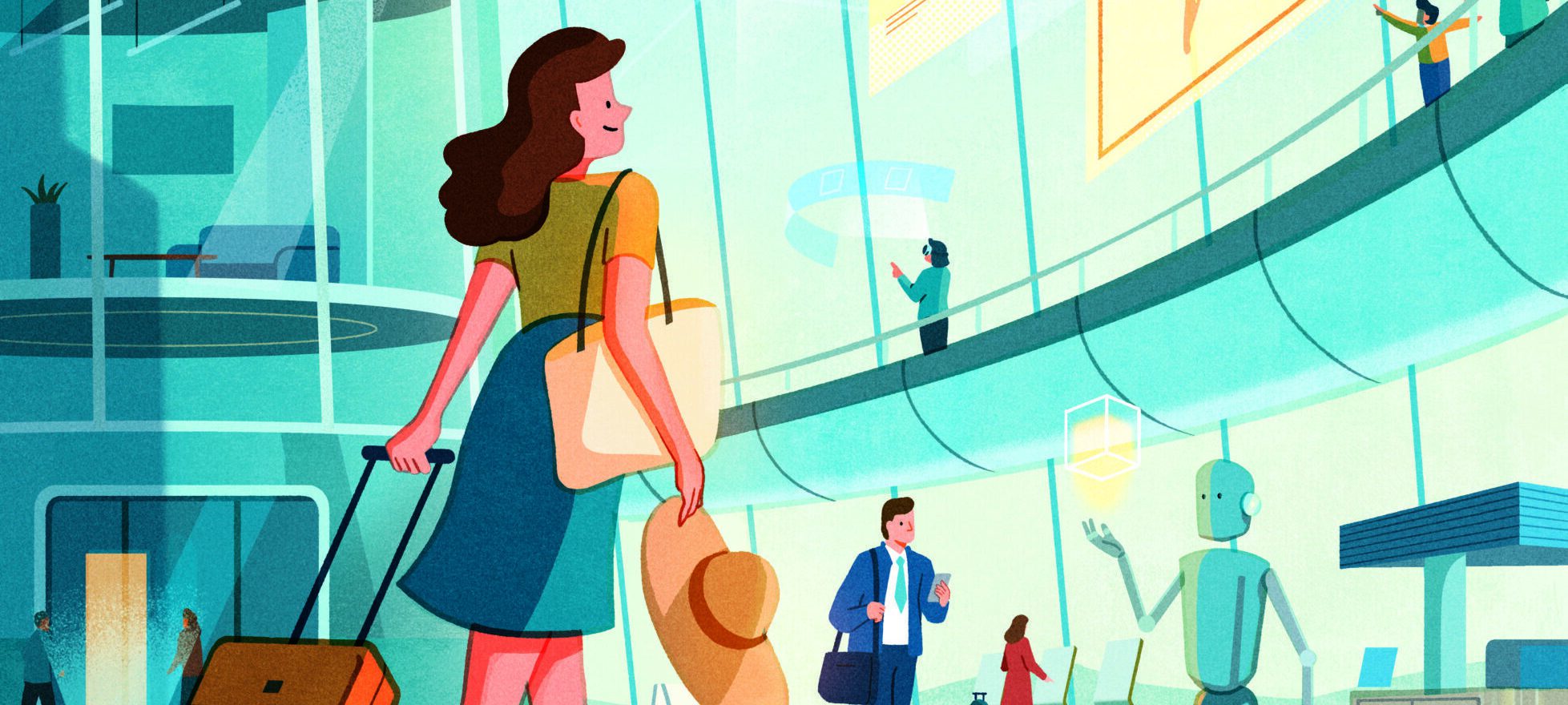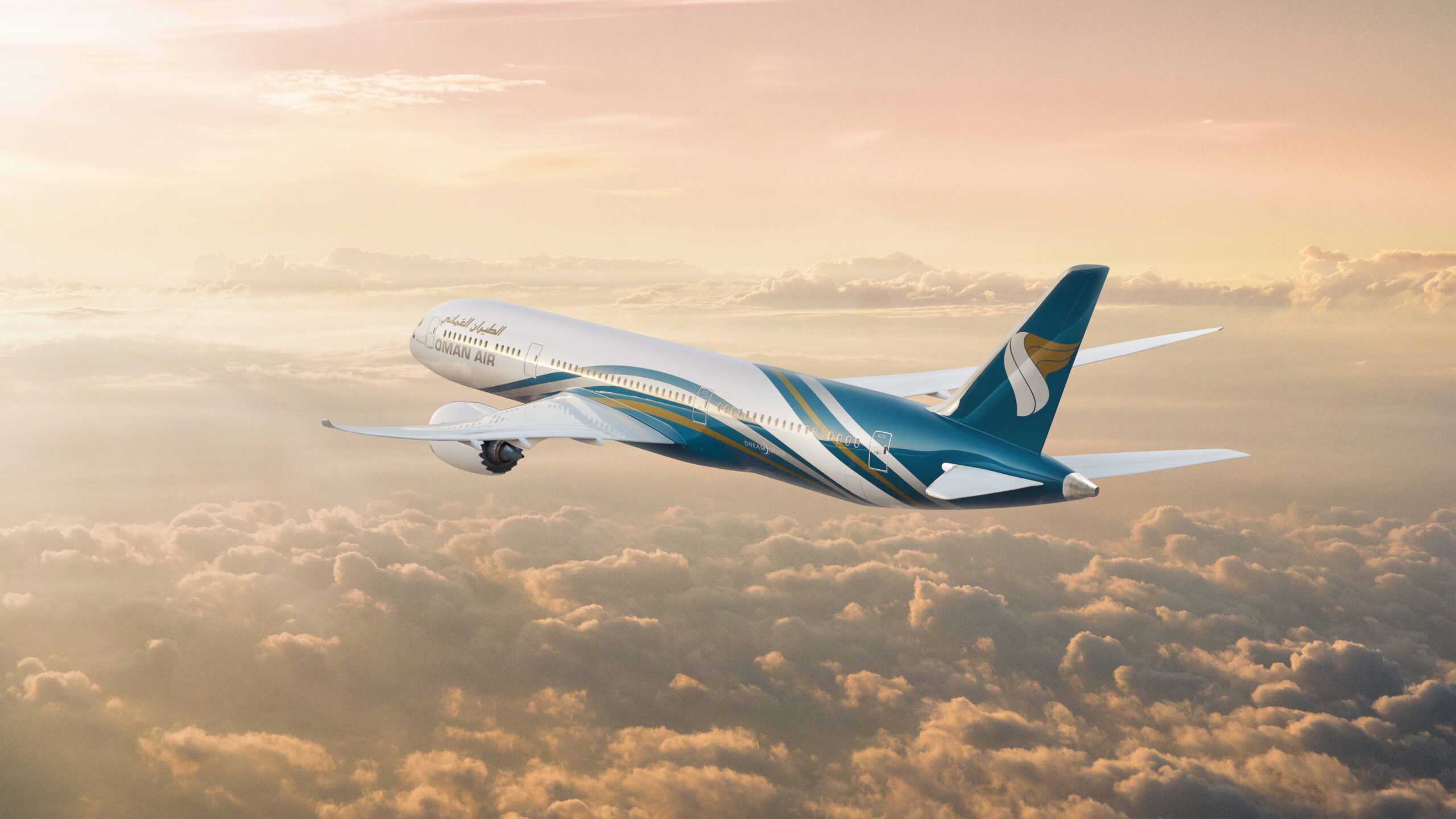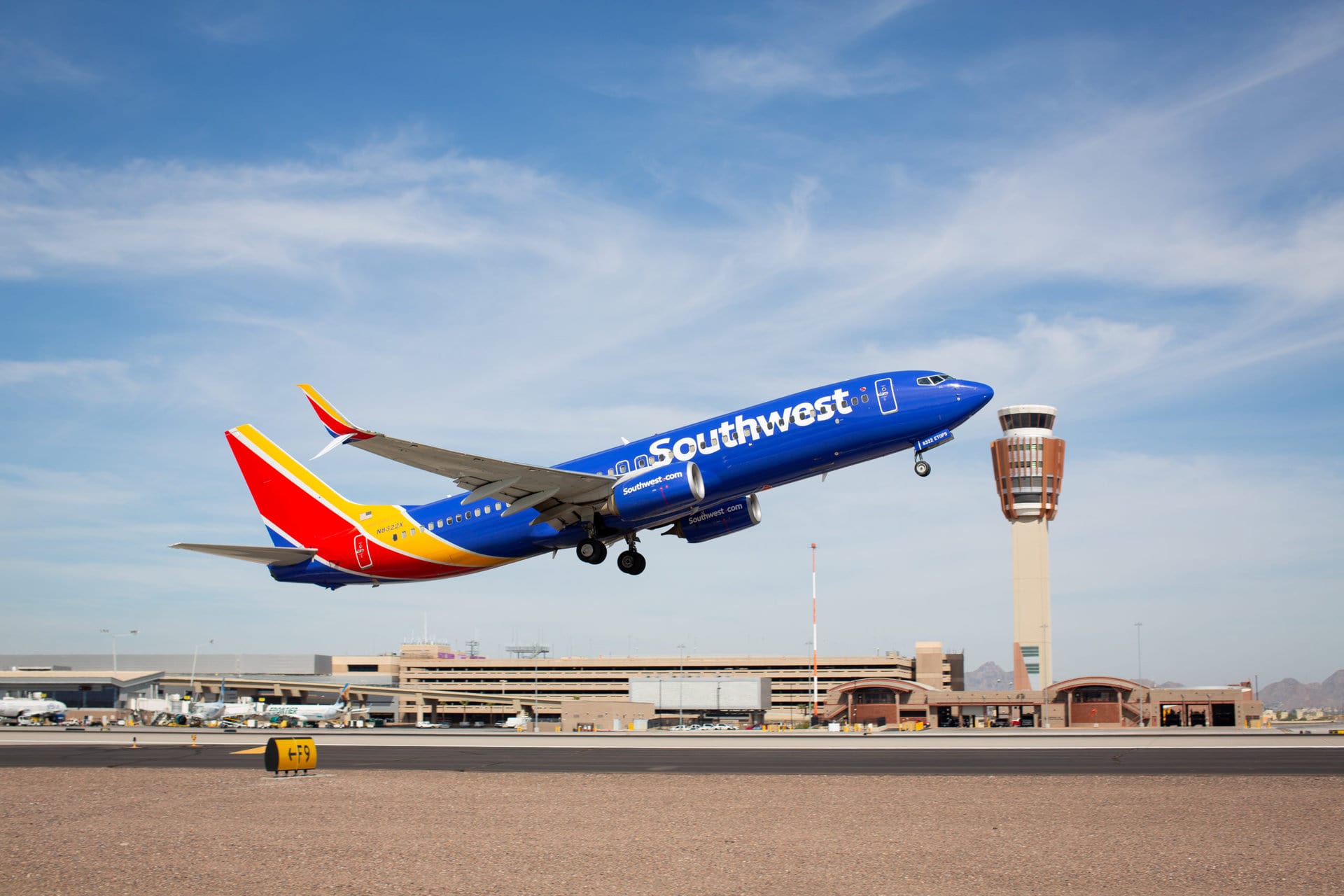What Does the Future of Business Travel Look Like? Robots, Smart Drones, and Other High-Tech Innovations
May 13, 2022

The travel industry is giving itself a high-tech upgrade, reinventing itself for tomorrow’s business traveler with high-tech hotels, smart airports and robot bartenders
Over the last two years, there have been fundamental shifts in business planning, spending habits and event logistics. But change and disruption have also proven to be powerful catalysts for growth and innovation—prompting the industry to give itself a long overdue high-tech upgrade and actively reinvent itself for tomorrow’s business traveler. “Demand for travel will only increase,” notes Roger Dow, president and CEO of the U.S. Travel Association. “Innovative solutions are more than a customer preference—they’re a necessity as we look ahead to the future of our industry.” More than eight in ten travelers say they are now excited to travel, while four in five business organizations agree that employees are ready to get back on the road. The time is clearly ripe for continuing evolution and digital transformation. Here, we take a closer look at what’s next for the increasingly technology-powered and artificial intelligence (AI)-fueled future of smart travel and hospitality.
Smart Airports
Powered by thousands of devices communicating with one another, tomorrow’s airports will use sensors and real-time data analytics to minimize wait times, enhance the traveler experience and boost overall efficiency. Thanks to emerging technologies such as computer vision (which allows machines to view scenes much as the human eye would) and machine learning (software that gets smarter with every interaction), you can expect increasingly seamless travel going forward. For example: Imagine dropping off your bags at an artificially intelligent airport kiosk, strolling right through security, and checking in for your trip just by walking onto the plane—never interacting with a human. Alternately, think of predictive technologies that track the movement of passengers and planes and grant airport administrators the capabilities they need to optimize staffing or fueling functions and regulate the flow of travelers through terminals. Smart airports such as Atlanta’s Hartsfield-Jackson (which is tapping into cloud-based tech to provide cleaner restrooms) and Turkey’s Istanbul (kiosk shoppers can use mirror apps to “try on” garments) are leading the way.
High-Tech Hotels and Conference Centers
Looking ahead to the future of hotels and convention centers, it’s all but certain that contactless technology will be a given, check-ins increasingly mobile- and app-powered, and self-service solutions a growing standard. You can also expect to see AI- and automation-powered personalities (known as “chatbots,” smart enough to pass for human) handling more guest service needs. From checking into your room with a glance or spoken word thanks to cutting-edge face- and voice-recognition technologies to waving a hand to unlock snacks from an automated kiosk, innovation will be the watchword here. But while hotel brands and destination venues are evolving in myriad ways to accommodate travelers’ changing needs, one thing’s for certain, according to Bob Gilbert, president and CEO of Hospitality Sales & Marketing Association International (HSMAI): “While each hotel brand will service customers differently, the most common denominator here will be the use of technology and how customers interact with it to enhance guest experience.” Just ask visitors to Tokyo’s Hennna Hotel (“Robot Hotel”), which is mainly staffed by robots; New York’s Yotel, which greets guests at self-service check-in by offering the services of a robot arm to automate luggage and safety-deposit storage; or various NH Hotels in Berlin, Milan and Barcelona, which allow travelers to leverage 3D holographic projections for meetings or business presentations.
Robots and Drones
With more than 500 individual companies now building robots, per Boston Consulting Group, it’s no surprise that the field is poised to grow at least tenfold to become a $260 billion industry by decade’s end. To see potential applications in action today, try stopping by Las Vegas’ Tipsy Robot, where a robot bartender can pour you a cold one; visiting your local White Castle (where Flippy 2 robots are automating burger preparation); or swinging by New York’s Truebird micro cafes (which are powered by intelligent coffee-making automatons). Hotel and hospitality providers can also look forward to a host of back-of-house applications: Service robots such as Savioke’s Relay+ are already facilitating contactless delivery of food, beverages, linens and event materials, while venues such as D.C.’s Walter E. Washington Convention Center are leveraging disinfecting robots like Adibot to safeguard against health concerns.
AI and Automation
To help better serve travelers, hotel chains aren’t just doubling down on providing high-speed Wi-Fi connectivity, ubiquitous USB charging and hybrid-friendly meeting spaces. They’re also incorporating smart technology and machine-learning solutions to offer more customized experiences and contextualized interactions to every customer. For instance: IHG Hotels & Resorts recently partnered with AI provider Josh.ai to create a voice-controlled smart hotel room at Palm Springs’ Kimpton Rowan that can auto-adjust lighting, shades, music and temperature to guests’ tastes. Likewise, Virgin Hotels’ popular personal assistant app, Lucy, only became more versatile amid the pandemic, adapting to not only serving as your room key, but also letting you tee up songs, videos and workout routines as need- ed, and ordering room or valet service. Behind the scenes, hotel chains are rapidly evolving, as well, and increasingly automating routine guest communications (booking reservations, servicing housekeeping requests, sharing important details on stays, etc.) to help reduce wait times and ensure faster responses. As HSMAI’s Gilbert notes: “While there’s no singular approach to reinvention, whether it be via a mobile app or the ability to use AI, innovation has been incredible here over the last two years. The continued explosion in product and service choices will only provide more options to different types of travelers.”
Supersonic and Space Travel
Boom, Spike Aerospace and other start-ups are already hard at work building faster, quieter supersonic jets that can ferry passengers overseas in half the time as traditional planes without emitting teeth-rattling sonic booms. Meanwhile, Virgin Galactic, SpaceX and Blue Origin are simultaneously racing to commercialize spaceflight. Clearly the sky’s the limit for new aerospace solutions. Just one question: Will anyone want to sit in the middle seat on these options, let alone when they’re catching a flight to Jupiter?




